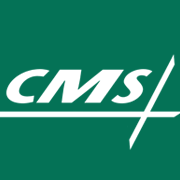Four New MACRA Tracks Allow Flexible Attestation for Providers
CMS unveiled four MACRA implementation tracks that will allow eligible clinicians to pace their own transition and participation in the program.

- Eligible clinicians will be able to select their own pace for MACRA attestation to ensure all participants can succeed under new value-based reimbursement programs, CMS announced.

On its official blog, the head of CMS detailed four options for participating in the new value-based care legislation, slated to start in January of 2017. The MACRA attestation tracks range from just testing the Quality Payment Program to fully participating in an Advanced Alternative Payment Model in 2017.
“In recognition of the wide diversity of physician practices, we intend for the Quality Payment Program to allow physicians to pick their pace of participation for the first performance period that begins January 1, 2017,” wrote Andy Slavitt, Acting Administrator of CMS.
“During 2017, eligible physicians and other clinicians will have multiple options for participation. Choosing one of these options would ensure you do not receive a negative payment adjustment in 2019.”
Here are the four new options for MACRA participation.
Testing the Quality Payment Program
The first option for eligible clinicians is to test the Quality Payment Program (QPP), including the Merit-Based Incentive Payment System. CMS noted that “as long as you submit some data to the Quality Payment Program, including data from after January 1, 2017, you will avoid a negative payment adjustment.”
Under the testing participation track, CMS intends for providers to ensure that their systems are working appropriately to succeed under the value-based reimbursement programs in the future, and that all participants are ready for increased participation by 2018 and 2019.
Partial year Quality Payment Program participation
Eligible clinicians may also elect to participate in MACRA for only part of the 2017 calendar year. Participants are allowed to submit data to the Quality Payment Program for a “reduced number of days” to qualify for a modest positive payment adjustment. The performance period for these providers would start later than January 1, 2017.
Full calendar year Quality Payment Program participation
CMS also granted a third option that allows eligible clinicians to participate for the full calendar year, starting on January 1, 2017. Providers who are ready to embrace MACRA standards may elect to submit all required data to the Quality Payment Program for the entire year and qualify to earn a “modest positive payment adjustment.”
The federal agency created the third option because it has “seen physician practices of all sizes successfully submit a full year’s quality data, and expect many will be ready to do so.”
Participation in an Advanced Alternative Payment Model
The final option for eligible clinicians is participation in an Advanced Alternative Payment Model in 2017, such as Medicare Shared Savings Program (MSSP) Track Two and Three.
CMS stated that if these providers maintain the appropriate Medicare payment and volume thresholds required under the approved alternative payment model in 2017, they would qualify for a five percent incentive payment in 2019.
“However you choose to participate in 2017, we will have resources available to assist you and walk you through what needs to be done,” Slavitt wrote. “And however you choose to participate, your feedback will be invaluable to building this program for the long term to achieve outcomes that matter to your patients.”
The flexible MACRA attestation options come days after lawmakers from the House Ways and Means Committee as well as the House Energy and Commerce Committee urged HHS Secretary Sylvia Mathews Burwell to develop more MACRA implementation flexibilities for providers starting the new program in January.
The lawmakers asked HHS to consider several changes, including simplified and streamlined requirements, explicit pathways to succeed in both the Merit-Based Incentive Payment System and the Advanced Alternative Payment Model tracks, and the implementation of appropriate systems for reporting by January 1, 2017. The letter also stated that CMS should contemplate more options for participating in an Advanced Alternative Payment Model.
Other healthcare industry groups, such as the American Medical Association and the American College of Rheumatology, have also called on CMS to postpone MACRA’s launch date to give eligible clinicians more time to understand the new value-based reimbursement structures and implement the systems necessary to earn incentive payments.
CMS currently has no plans to delay MACRA’s start date, but Slavitt explained that the agency developed the flexible participation tracks in response to stakeholder feedback.
“We heard from physicians and other clinicians on how technology can help with patient care and how excessive reporting can distract from patient care; how new programs like medical homes can be encouraged; and the unique issues facing small and rural non-hospital-based physicians,” he wrote.
CMS intends to further review stakeholder feedback on the MACRA implementation proposal from April and release a final rule by November 1.
“We appreciate the sincere and constructive participation in the feedback process to date and look forward to advancing step-by-step in that same spirit,” concluded Slavitt. “We look forward to releasing the final details about the program this fall. Most importantly, we look forward to further engagement with physicians and other clinicians toward our shared goal of the highest quality of care and best outcomes for patients.”
Dig Deeper:
• What We Know About Value-Based Care Under MACRA, MIPS, APMs
• Providers Need Time, Resources for MACRA Implementation
